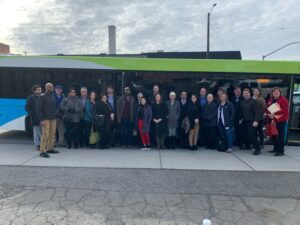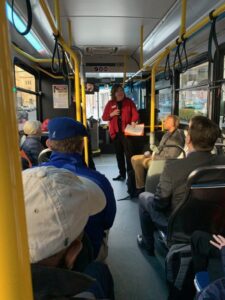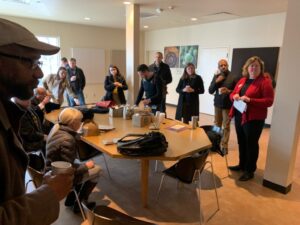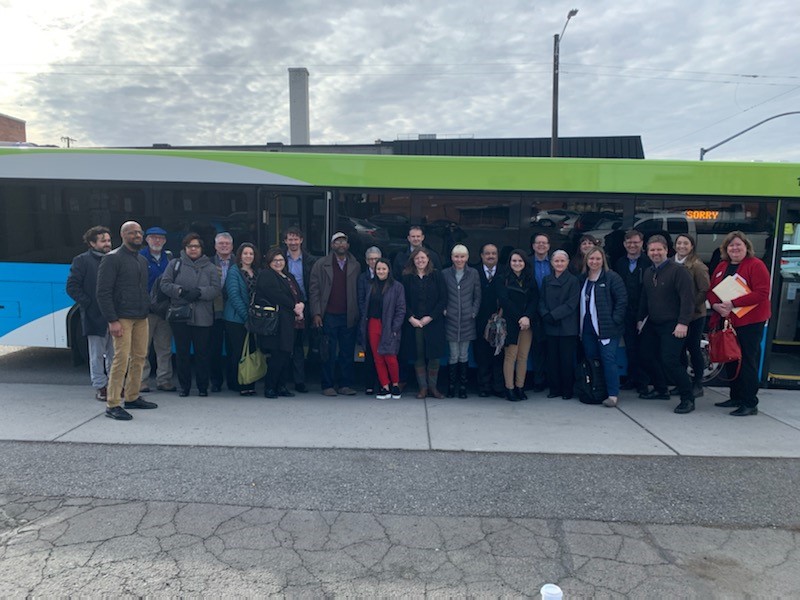INVEST HEALTH SUMMIT SHOWCASES SPOKANE’S COLLABORATIVE SPIRIT
By Craig Howard, Community Relations-Development Manager, Spokane Neighborhood Action Partners (SNAP)
The gathering in Spokane lasted less than three full days but the positive impact is still reverberating in places like Greensboro, North Carolina and Grand Rapids, Michigan.

On Feb. 25-27, Spokane hosted an Invest Health conference that took the shape of a dynamic brainstorming session on affordable housing, community health and the benefits of public/private partnerships. For attendees like Dr. Stephen Sills, director of the Center for Housing and Community Studies at the University of North Carolina-Greensboro, the gathering was well worth the nine-hour round trip by plane.
“It was the strategic outcome we had hoped for,” said Sills. “Spokane for us was a catalyst. It showed us that public housing can play a central role in convening the continuum of care. It was a reminder that you can stay compliant and address needs and also be creative in public/private partnerships.”
Greensboro, Grand Rapids and Spokane are among 50 U.S. cities to receive grants from the Robert Wood Johnson Foundation to address affordable housing and its intersection with health. The foundation also selected 10 communities from the 50 to participate in summits like the one held in Spokane.
 The Robert Wood Johnson Foundation and the Reinvestment Fund are partnering on Invest Health, described on the Reinvestment Fund website as “a new initiative that brings together diverse leaders from mid-sized U.S. cities to develop new strategies to increase and leverage private and public investment and accelerate improvements in neighborhoods facing the biggest barriers to better health.”
The Robert Wood Johnson Foundation and the Reinvestment Fund are partnering on Invest Health, described on the Reinvestment Fund website as “a new initiative that brings together diverse leaders from mid-sized U.S. cities to develop new strategies to increase and leverage private and public investment and accelerate improvements in neighborhoods facing the biggest barriers to better health.”
Both Grand Rapids and Greensboro have populations similar to Spokane while all three cities face parallel challenges when it comes to housing – a dwindling supply of affordable multi-family and single-family units, rising property values and scarce home ownership opportunities for lower-income residents.
Locally, SNAP serves as the fiscal agent for the grant with Cameryn Flynn, SNAP’s Ride to Health coordinator, acting as Invest Health project manager. In addition to SNAP, local partners include Volunteers of America, Catholic Charities, Spokane Transit Authority (STA), the city of Spokane and the Spokane Housing Authority.
Flynn said last month’s conference spotlighted Spokane’s unique emphasis on collaboration.
“It showed how a city of our size has such good partnerships and how everyone works together,” Flynn said. “Those who came here were definitely impressed with the way the Spokane Housing Authority works with the community to successfully increase housing vouchers.”
The Greensboro contingent included representation from the health sector, higher education, private development, the city of Greensboro and the Greensboro Housing Coalition. Sills said one change that has occurred since the conference is that referrals are now being made to the Greensboro Housing Coalition in cases of possible evictions for financial reasons.
“That came about from a side conversation we had over dinner in Spokane,” Sills recalls. 
Jeremy DeRoo is the executive director of a nonprofit in Grand Rapids that develops affordable housing and specializes in community organizing. He said the conference served “as a reminder that local leadership matters and that collaborative spirit can make a difference.”
“I was impressed with the ability of the (Spokane) Housing Authority to efficiently allocate resources through partnerships,” DeRoo said. “We were able to see how collaboration is working in Spokane to address affordable housing issues.”
